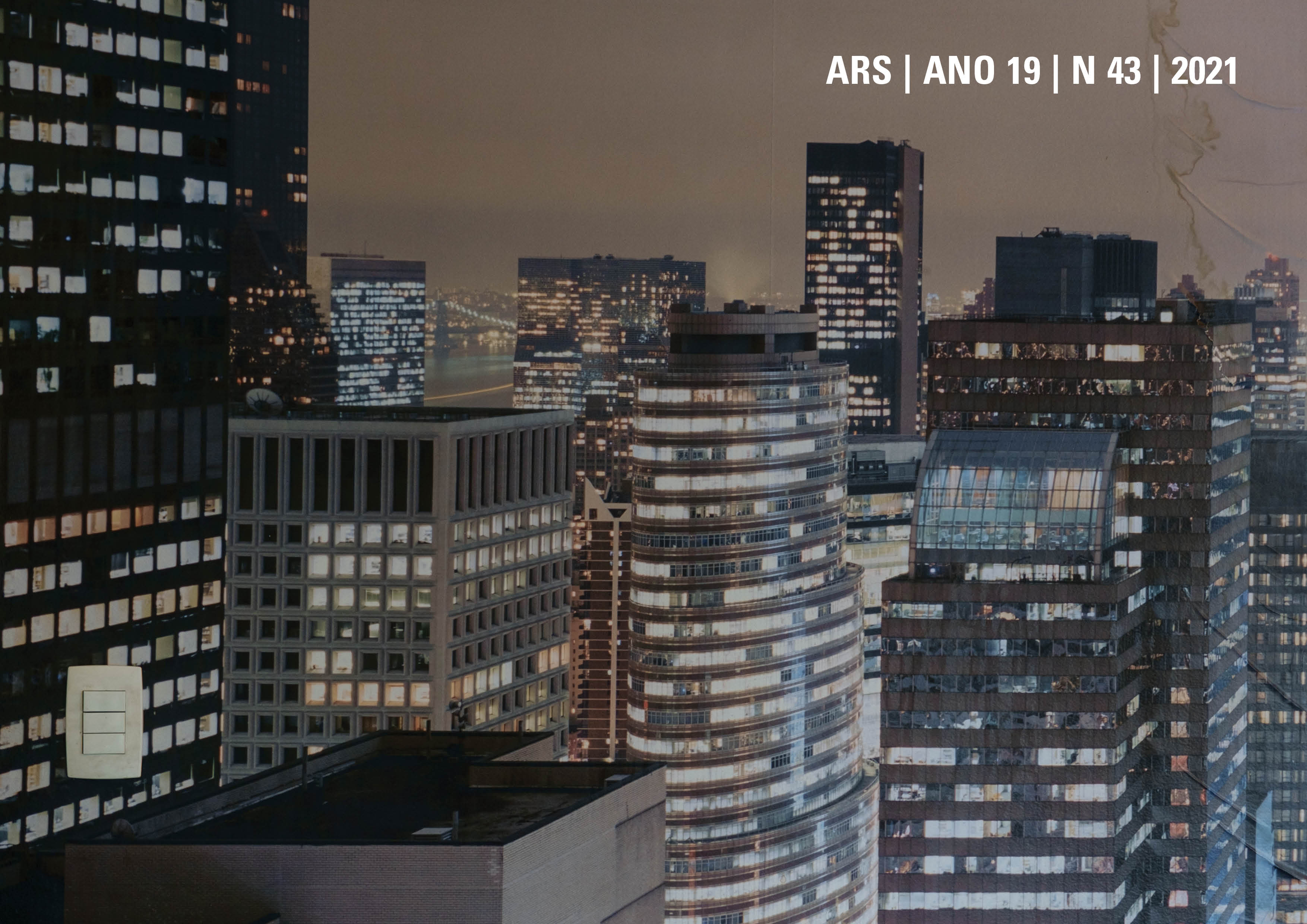William Blake against the “Satanic Mills” of Modern Rationality
DOI:
https://doi.org/10.11606/issn.2178-0447.ars.2021.178423Keywords:
William Blake, Early-Modernity, RationalityAbstract
The present article brings to the fore the heavy criticism William Blake addressed to rationalism, which had extended widely and consolidated itself into the most powerful European nations by the end of the XVIII century, and the singular imagination which animates his work, its mystic and obscure dimensions and inclination to establishing a system of its own, refusing the kind of “abstract” vision of the world that Blake saw underlying the writings of some thinkers of the early modern era. At the same time, it searches to show how Blake’s work broke well established paradigms of knowledge of his time, and concludes that his work should be acknowledged as a turning point in early modern aesthetics.
Downloads
References
BLAKE, William. Jerusalém / trad. Saulo Alencastre. São Paulo: Hedra, 2013.
BLAKE, William. Milton / trad. Manuel Portela. São Paulo: Nova Alexandria, 2014.
BLAKE, William. Visões / trad., org., introdução e notas José Antonio Arantes. São Paulo: Iluminuras, 2020.
CRABB ROBINSON, Henry. Extracts from the Diary, Letters and Reminiscences of Henry Crabb Robinson, transcribed from the Original MSS. in Dr. Williams’s Library, 1810-1852. In SYMONS, Arthur. William Blake. New York: E.P. Dutton And Company, 1907.
DAMON, S. Foster. A Blake Dictionary: The Ideas and Symbols of William Blake. Hanover: Darthmouth College Press, 1965.
DOWNING, Lisa. George Berkeley. In Stanford Encyclopedia of Philosophy Archive (Spring 2020 Edition). Stanford: Center for the Study of Language and Information (CSLI), Stanford University, 2020. Disponível em: https://plato.stanford.edu/archives/spr2020/entries/berkeley/. Acesso em: 19 ago. 2021.
ERDMAN, David V. The Complete Poetry and Prose of William Blake: Newly Revised Edition. New York: Anchor Books, 1988.
FRYE, Northrop. Fearful Symmetry: A Study of William Blake. Princeton: Princeton University Press, 1947.
HILLMAN, David; MAUDE, Ulrika. Introduction. In HILLMAN, David; MAUDE, Ulrika (ed.). The Cambridge Companion to the Body in Literature. Cambridge: Cambridge University Press, 2015.
JARVIS, Simon. Blake’s Spiritual Body. In WILSON, Ross. The Meaning of “Life” in Romantic Poetry and Poetics. New York: Routledge, 2009.
JAY, Martin. Songs of Experience: Modern American and European Variations on a Universal Theme. Berkeley e Los Angeles: University of California Press; Londres: University of California Press, Ltd, 2005.
LESSER, Harry. Blake and Plato. Philosophy, [S.l.], v. 56, n. 216, pp. 223-230, abr. 1981. Disponível em: <https://www.jstor.org/stable/3750744>. Acesso em: 29 out. 2020.
MAKDISI, Saree. Blake and the Impossible History of the 1790s. Chicago: University of Chicago Press, 2003.
MITCHELL, W. J. T. Blake's Composite Art: A Study of the Illuminated Poetry. Princeton: Princeton University Press, 1978.
RAINE, Kathleen. Blake and Antiquity: The A. W. Mellon Lectures in the Fine Arts 1962. Princeton: Princeton University Press, 1963.
RIX, Robert W. Blake, Bacon and “The Devil’s Arse”. Blake: An Illustrated Quarterly, Chapel Hill, pp. 137-144, primavera 2004. Disponível em: http://bq.blakearchive.org/37.4.rix. Acesso em: 06 mai. 2020.
ROUSSEAU, G.S.. Science and the Discovery of the Imagination in Enlightened England. Eighteenth-Century Studies, [S.l.], v. 3, n. 1, pp. 108-135, outono 1969.
SPENCE, Joseph. Anecdotes, Observations, and Characters of Books and Men: Collected from the Conversation of Mr. Pope and Other Eminent Persons of his Time. London: J. R. Smith, 1858.
TOWNSEND, Chris. Visionary Immaterialism: Berkeleian Empriricism in Blake's Poetry. Studies in Romanticism, [S.l.], v. 58, n. 3, pp. 357-382, outono 2019.
WIGNER, Eugene. Symmetries and Reflections. Woodbridge: Ox Bow Press, 1979.
Downloads
Published
Issue
Section
License
Copyright (c) 2021 Isabela Ferreira Loures

This work is licensed under a Creative Commons Attribution-NonCommercial 4.0 International License.
The responsibility for obtaining written permission to use in the articles materials protected by copyright law lies entirely with the author(s). Ars is not responsible for copyright breaches made by its collaborators.
The authors have the copyrights and grant the journal the right of the first publication, with the article licensed under the Creative Commons BY-CC License.
Licensees have the right to copy, distribute, display, and carry out the work and make derivative works from it, including with commercial purposes, granted that they give the due credit to the author or licensor, as specified by them.
Licensees compromise to inform the appropriate credit, provide a link to the license, and indicate if changes were made.
Respected the terms of the license, the licensors/authors are not allowed to revoke the conditions above mentioned.
After the publication of the articles, the authors keep the copyrights and the rights to republish the text exclusively in unpublished books and collections.



